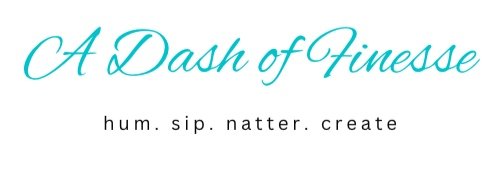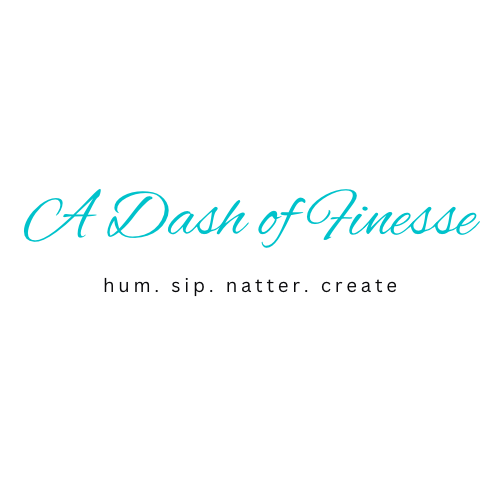More Than an Afro Chick - a personal essay
For as long as I can remember, and possibly even longer than that, I’ve been Chantai Finesse. While the origin of thought to determine that I could be considered anyone otherwise is uncertain, over the course of my life, experiences have dictated a supposed narrative I was to live. Being a woman for instance determines certain preconceived ideas. Being black produces others. The way I wear my hair, among other generalizations about the way I portray myself has me constantly defending my right to individuality and I surmise this from the following: Ascertaining information regarding heredity; developing preconceived ethnic ideals; and assumptive categorizing based on pop-cultural affiliation.
Oftentimes, in order to determine the premise for direction that one will take, an account of the individual’s background story is taken. I was born in the UK to Jamaican parents. My father’s side consists of Maroon descent, the strong, stubborn and determined Africans who fought against enslavement in Jamaica. He often recounted stories of his grandmother who was small in stature with long blue-black hair flowing down to her feet who didn’t take anything from anybody. My mother’s side is a mixture of Indian descent with my mum having a fairer complexion and hazel eyes. She was a target to some and as a result learned to fight back against prejudice from an early age. My bloodline is as diverse as the personalities within my family. Our roots are heavy in Christianity, though in my teenage years I attended a Messianic Synagogue where I was exposed to the Hebrew language and predominantly Jewish celebrated holidays and observances. Growing up I struggled with my identity and faith due to the many influences and environments I was exposed to during my childhood. I never quite fit in with any conclusive group around me. I follow the teachings of the Tanakh and read the parshas but am I Jewish? No. My parents are Jamaican but I don’t really like bulla, hard dough bread or oxtail, which to some defines my “Jamaicaness”. I am serious about my faith and relationship with God (HaShem), Jesus (Yeshua), and the Holy Spirit (Ruach HaKodesh) but don’t identify as being religious. The way I spoke often left people saying I was white-washed or not like other black people. There are many things that make me who I am. I am a mixture of my parents. My bloodline will tell you a story of where my ancestors have been and went; all of whom lead very distinct journeys. To confine me to checking off a simple box does not truly reflect my entire story, it only tells a very small part of it and thus supports my determination to oppose ideas that aim to identify me at face value.
Being a black woman is a very complex affiliation. I grew up with a very limited perception of what I could be. I was constantly reminded of what I was not. I was not white and therefore could not have the same attitude as my peers growing up. I had to be aware of the stereotypes existing of being a thief or uneducated and always strive to work harder, with less room for failure. This lead to an intense burden to please others. Being a black woman, meant I was to identify with the injustices of black men and so support them because of my depth of understanding. This led to supporting some men who did wrong; who cheated on their families and abused their power on others. It blindly allowed me to accept mental and emotion abuse in one relationship and excuse sexual abuse in another. Being both black and a woman, meant I was strong enough to endure pain, but too weak to expect better treatment and more respect. It meant that my hair was supposed to be tame, less afro textured, more straightened, because I wasn’t good enough as I was. I was encouraged to use facial products to lighten my tone, and thank God that my nose wasn’t as “black” or wide as some. Here is the caveat though. Although, many a times I would follow these instructions as prescribed, they never aligned with my beliefs, and creates a constant battle for my right to define my own identity of black femininity.
This modern era of “wokeness”, “black girl magic” and being a “naturalista” are amazing tools of affirming black women’s intelligence, influence and contributions to societal progression. Where inclusion previously did not exist, there are new forms of representation, but they are not to be confused as new categories to be typecast. I made the choice to go back to my natural hair texture in 1998. Since then, my signature look has been an afro puff, or afro with a wrap towards the front. I have sported braids, extensions, twists, twist-outs, crochets, faux locs, and several wigs with one stint of texturizing my coils at 21 years old. I have been in the natural hair journey long before it became relevant or mainstream and because of this I have never fully identified as a modern-day naturalist (Urban Dictionary, 2016). There are new limitations ranging from absence of chemically-based products to frequency of care to professional involvement. At the end of the day, my style will change depending on the mood, my environment and personal preferences at any given time. As my education and experiences have evolved so do the principles that govern my choices, which are at liberty to be separate from the social and web-based appropriations that are constantly being shared and modified.
With distinct identifiers within an individual’s make up like that of fingerprints and dental records, it is evidenced that everyone is indeed unique; slowly with time, people are learning to acknowledge these differences. My role as a wife and mother, has influenced my focus to being family-centered in terms of relating to one another, further evaluating my power of influence over the home and learning how I evolve with each of my relationships. My aptitude in creative expression rolls into my writing, my music choices, my communicating with others, and creating environments meant to welcome and encourage conversation. My continued growth in faith increases my unapologetic courage to be authentic and free, while at the same time empathetic to those who do not share my views. My attitude shaped by a constant drive towards progression and unafraid of change; which has been enhanced through my development as a college student, pastry chef in training, various occupations and personal life experiences have all impacted my views as an afro wearing female. The next time information regarding heredity is being ascertained or ethnic ideals are being developed or pop-cultural affiliations are being created, don’t dare categorize me because of them. Let me be the one to explain who this “chick” really is.
Glossary of terms:
Tanakh - the derived acronym from the Hebrew letters of its three components: Torah (first five books of the bible or Pentateuch), Nevi'im (Prophets) and Ketuvim (Writings) - see definition source here
Parshas - Readings from the Torah, which are divided into 54 weekly Torah portions - see definition source here
Bulla - or bulla cake is a richly textured Jamaican cake made from molasses with nutmeg and ginger flavouring (see definition source here)
Wokeness - “a state of being aware, especially of social problems such as racism and inequality” - see definition source here
Black Girl Magic - “Black Girl Magic and #blackgirlmagic were created to celebrate the accomplishments… of black women. It is used as an expression of positivity and empowerment.” - see definition source here
Naturalista - commonly termed as “A natural woman devoted to the natural growth of her own natural textures” - see definition source here
References:
Discovering Bristol. (n.d). The Maroons of Jamaica. Retrieved from http://www.discoveringbristol.org.uk/slavery/against-slavery/black-resistance-against-slavery/the-maroons-of-jamaica/
Urban Dictionary. (2016). Naturalista. Retrieved from https://www.urbandictionary.com/author.php?author=Judy_Stylez

